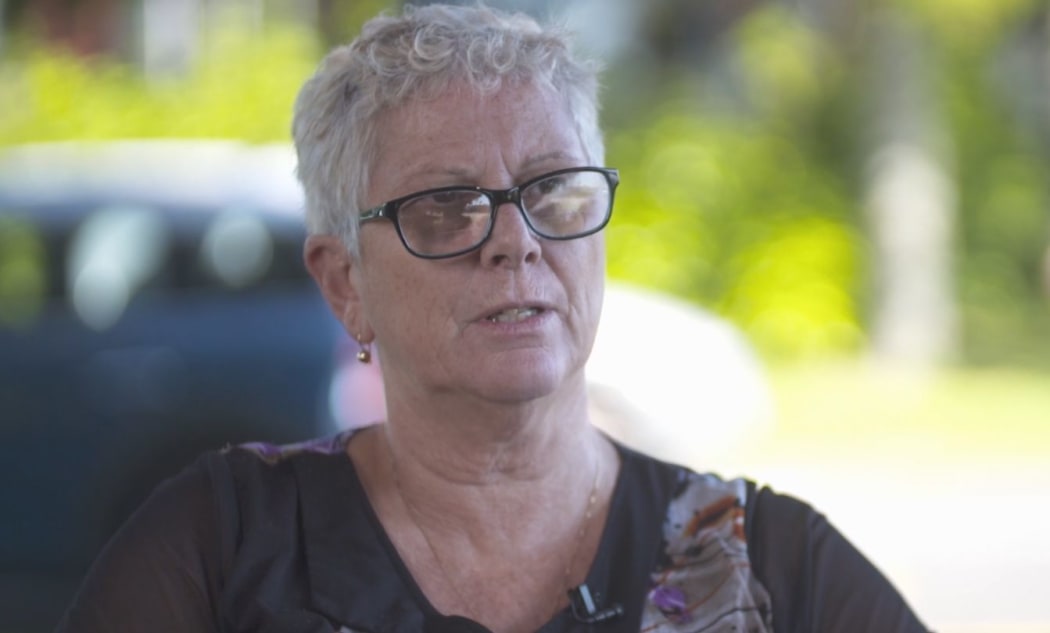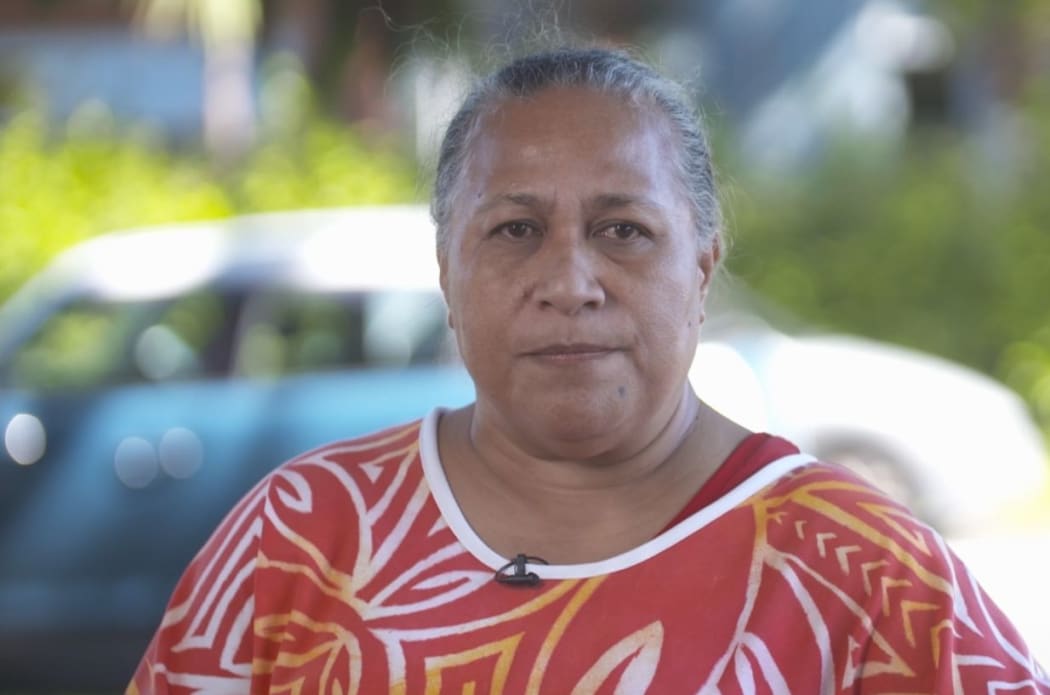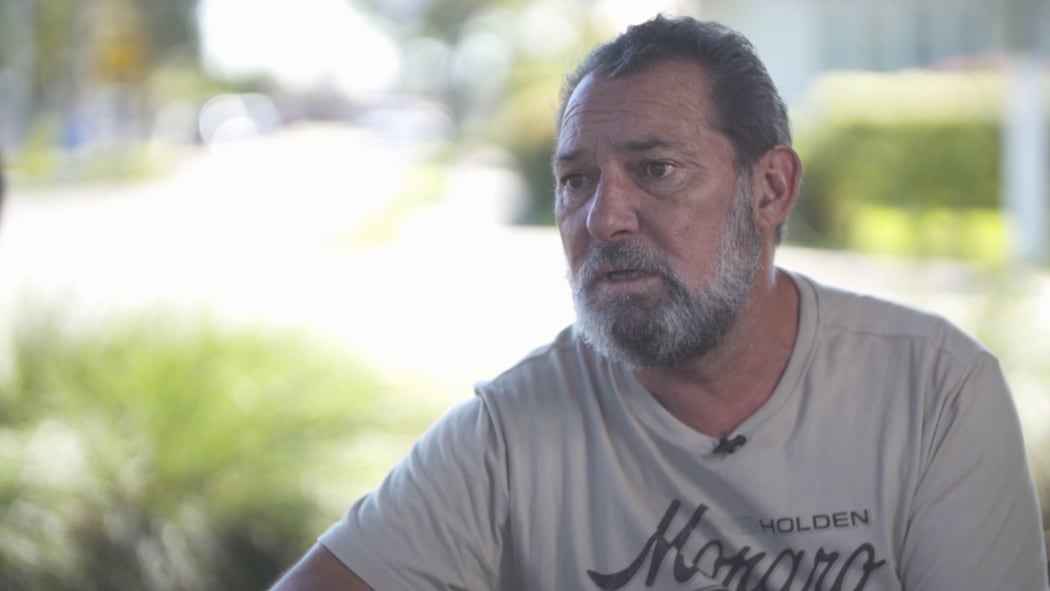Tenants living in a South Auckland social housing complex say complaints about assaults, sexual harassment and drug dealings are not being taken seriously, and they no longer feel safe in their homes.
The Ministry of Housing and Urban Development (HUD) is now calling an urgent meeting with non-profit Australian housing provider Compass after the group raised serious safety concerns.
The 54-unit Papatoetoe complex of one-bedroom, one-bathroom units with communal kitchens is compact, close-quarter living supplied to people with high or complex needs who have been unable to find private rentals.
Tenants say it is plagued with problems, including excessive drinking and partying that breaches tenancy rules, abusive behaviour and the regular presence of gang members who are not residents.
They say their complaints have not been taken seriously, leaving them feeling ignored, “like nothing” and “second class citizens”.
Several tenants met with Checkpoint host Lisa Owen and showed her the complaints they’d made to Compass and police. Some have been resolved, but said it was an ongoing battle.
Debbie said she had made more than 50 complaints to Compass managers, including one about a known drug dealer who would leave the security door open by wedging a stone or chair against it, so his clients could visit him – any time of the day or night.
“He was hammering on my door and abusing me, calling me all names under the sun. I rang the police from there. He came back and he started abusing me in the doorway and told me he'd get the boys onto me to deal with me.”
The residents said after months of complaining the man was eventually evicted last year but in their view Compass was and is slow to act. The former tenant is also still able to visit the complex despite his alleged threatening behaviour.

Compass tenant Debbie says she has made more than 50 complaints to managers. Photo: RNZ / Checkpoint
Compass said in a statement it had no power or authority to investigate alleged criminal behaviour, saying it was a police matter.
Debbie is worried about other problems with ongoing violence. She once called the police after a neighbour ran into the kitchen, begging her to call the cops because her boyfriend had tried strangling her. The man was convicted this year and returned to the address even though he's not an official tenant. Guests are only allowed to stay for two weeks.
Again, the tenants say they have complained, but there has been little action.
Debbie said she was promised safe, secure housing when she signed up – but that hasn’t been delivered.
Tenants pay income-related rent, topped up by government via subsidies and an operating supplement. Since 2016, the government has paid Compass about $3.3 million. The Compass tenant handbook says residents are entitled to peace and quiet and it will assist them to enjoy their home.
Lily moved to the complex because she was being harassed by a man at her previous accommodation. Other women living at her former accommodation also complained about him, and he ended up moving to the same place where Lily now lives.
“When I am cooking something in the kitchen he is just standing behind me and I can hear, he starts talking like ‘ooh you look so sexy’.
“I am working, I finish at night time most of the time. When I come home like one o’clock, he can hear me open the door and he come out straight away.”

Another Compass tenant, Lily says she has continued to be harrassed by the man she moved to the apartments to be away from. Photo: RNZ / Checkpoint
She said she yells at him to leave her alone, while he tells her through the door that he wants to have sex with her.
“It really upsets me. Sometimes I have to stay in my room and I feel so tense … I feel so depressed every time I see him around. I feel really anxious all the time.”
Lily said she had complained to the not-for-profit company multiple times, which asked her to fill out some forms.
“They don’t do anything, they just swipe everything under the carpet.”
Another tenant, Len, said he had to step in on one occasion. Len has a prosthetic leg and sometimes uses a wheelchair. He told Checkpoint’s Lisa Owen the man stood on his leg, causing him to fall over, and he ended up spending several days in intensive care.
“On the whole there are some really lovely people there, but we have the odd one that causes trouble and continues to cause trouble.
“I’ve been threatened to be killed, I’ve been threatened with a knife, been told that he’ll climb through my window at night when I’m asleep and slit my throat. I’ve had numerous police complaints about it.”

Compass tenant Len says the provider declined his request for wheelchair access at the main door. Photo: RNZ / Checkpoint
He said wheelchair access was a major problem, as it was “near impossible” to open the main door when he’s in his wheelchair.
Len said he asked Compass for a ramp to his unit’s sliding door, but his request was declined.
'Tenant safety our number one priority' - Compass
Compass would not give Checkpoint an interview, citing privacy issues, but in a statement said it had never had an accessibility complaint.
It said many of its tenants were “high needs” and on Ministry of Social Development’s social housing register. It said they were supported by a range of social service agencies.
“Compass provides referrals to additional support services where necessary and works closely with Otahuhu Community Police to help tenants mediate disputes and resolve conflict," it said.
“Tenant safety is our number one priority and we take all reports of antisocial behaviour extremely seriously. However, like any landlord, Compass does not have the power or authority to investigate allegations of criminal activity and therefore encourages tenants to direct any such concerns to the police.”
In cases where antisocial behaviour is established and is in breach of a tenant’s lease it takes action to remedy the breach or in severe cases have the tenant evicted.
Compass said a number of the incidents referenced by Checkpoint occurred more than 12 months ago, and individuals were subsequently evicted.
“Substantiating alleged antisocial behaviour and responding appropriately under the Act can be time consuming which we recognise can be frustrating for neighbours.
“Everybody deserves to feel safe in their own home and we will continue to do everything in our power to make sure they do.”
A Ministry of Housing and Urban Development spokesperson said Compass worked with vulnerable people and did an outstanding job. It said Compass did not provide wrap-around services but its contract required it to connect tenants to appropriate support services.
They said it was "concerning to hear about the issues raised by tenants” and would meet with Compass as a matter of urgency to understand what had occurred and what could be done to ensure tenants felt safe.
It referred the tenants’ concerns to the Community Housing Regulatory Authority, which oversees providers.

